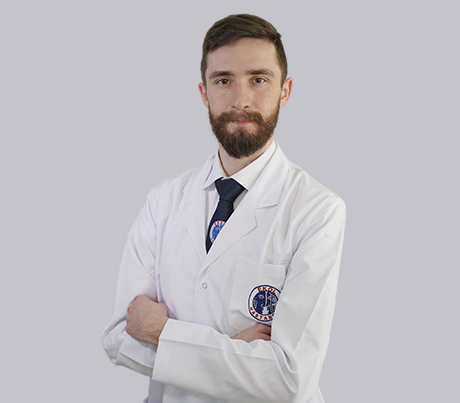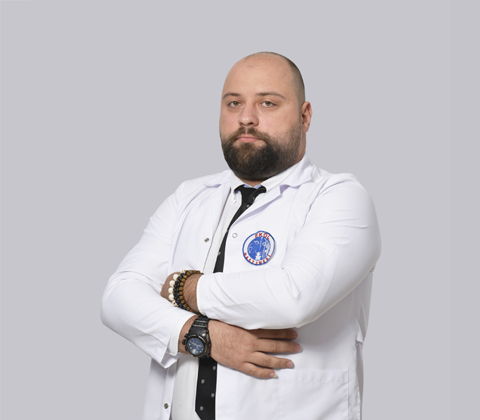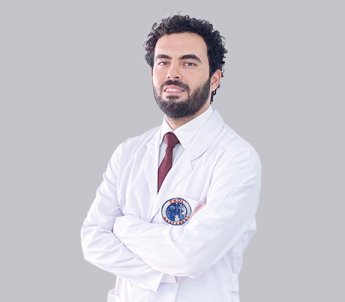Emergency physicians are highly trained medical professionals specializing in emergency medicine, a field focused on the immediate decision-making and action necessary to prevent death or further disability in urgent medical situations.
These physicians are skilled in evaluating and treating a vast array of illnesses and injuries, often under extreme time pressure. They work primarily in emergency departments of hospitals, where they encounter a diverse range of cases from minor injuries to life-threatening conditions like heart attacks, strokes, and trauma.
Their role is critical in triage, stabilizing patients, and determining the urgency and required course of treatment.
The work of an emergency physician is fast-paced and demanding, requiring a broad base of medical knowledge, excellent decision-making skills, and the ability to remain calm and effective under pressure.
Their expertise is vital in providing immediate care and making split-second decisions that can save lives.
What is the role of an emergency physician in the emergency department?
The role of an emergency physician in the emergency department is multifaceted and crucial for providing timely and effective care to patients in urgent medical situations. Here are the key aspects of their role:
- Triage: Emergency physicians are often the first medical professionals patients encounter in the emergency department. They assess the severity of each patient's condition through a process called triage. This involves quickly determining who needs immediate attention and who can wait based on the urgency and severity of their condition.
- Rapid Assessment: Emergency physicians perform rapid and thorough assessments of patients to diagnose their medical conditions accurately. They gather information about symptoms, medical history, and perform physical examinations, as well as order necessary tests such as X-rays, blood tests, or imaging scans.
- Stabilization: In cases of critical illness or trauma, emergency physicians are responsible for stabilizing patients. This may involve administering life-saving interventions, such as CPR, intubation, or controlling bleeding, to ensure the patient's vital signs are stable.
- Treatment Planning: Once a diagnosis is made, emergency physicians determine the appropriate course of treatment. They may administer medications, provide wound care, splint fractures, or perform minor procedures. For complex cases, they may consult with specialists for further evaluation and treatment.
- Communication: Effective communication is a crucial aspect of their role. Emergency physicians must convey the patient's condition and treatment plan to the patient or their family, and they often collaborate closely with nurses, paramedics, and other healthcare professionals in the emergency department.
- Coordination of Care: Emergency physicians coordinate the care of patients with multiple medical issues or those requiring admission to the hospital. They ensure that patients receive appropriate care, consultations, and referrals to specialists as needed.
- Decision-Making: Emergency physicians make rapid and critical decisions about patient care. They must prioritize interventions based on the severity of the patient's condition and the available resources.
- Emergency Procedures: Emergency physicians are trained to perform a wide range of emergency procedures, including suturing wounds, reducing dislocations, draining abscesses, and more. They are skilled in using medical equipment and technology for these procedures.
- Documentation: Accurate and thorough documentation of patient assessments, treatments, and decisions is essential for legal and medical record-keeping purposes. Emergency physicians are responsible for maintaining clear and complete records.
- Continuing Education: To stay current with medical advancements and best practices, emergency physicians engage in ongoing medical education and training. This ensures they are equipped to handle new challenges and emerging medical knowledge.
Overall, the role of an emergency physician is demanding, fast-paced, and requires a high level of clinical skill, decision-making ability, and the capacity to work effectively under pressure. Their primary goal is to provide immediate care and interventions that can save lives and alleviate suffering in emergency situations.
How are emergency physicians trained?
Emergency physicians undergo extensive training to acquire the knowledge and skills necessary to excel in their specialized field. The training process typically includes the following steps:
- Undergraduate Education: Like all medical doctors, aspiring emergency physicians begin their journey with a bachelor's degree in a relevant field. This typically takes four years to complete and provides a foundation in biology, chemistry, and other pre-medical coursework.
- Medical School: After completing their undergraduate degree, individuals interested in becoming emergency physicians must attend medical school, which generally takes four years. During medical school, they study various medical disciplines, including anatomy, physiology, pharmacology, and clinical medicine.
- Residency in Emergency Medicine: Upon earning their medical degree (MD or DO), aspiring emergency physicians enter a residency program in emergency medicine. This residency typically lasts for three to four years. During this time, they receive specialized training in the evaluation, diagnosis, and treatment of acute and critical medical conditions encountered in emergency departments. The residency includes rotations in various clinical settings, such as trauma centers, pediatric emergency departments, and community hospitals.
- Clinical Rotations: Residents gain hands-on experience by working in the emergency department under the supervision of experienced emergency physicians. They assess and treat patients, make decisions under time pressure, and learn to manage a wide range of medical emergencies.
- Didactic Education: In addition to clinical experience, emergency medicine residents participate in didactic education, which includes lectures, conferences, and case-based discussions. This formal education covers topics such as advanced life support, trauma management, toxicology, and critical care.
- Certification: After completing their residency, individuals are eligible to seek board certification in emergency medicine. Certification is typically obtained through organizations such as the American Board of Emergency Medicine (ABEM) or the American Osteopathic Board of Emergency Medicine (AOBEM). Successful certification demonstrates their expertise and commitment to the field.
- Optional Fellowships: Some emergency physicians choose to pursue fellowship training in specialized areas within emergency medicine, such as pediatric emergency medicine, toxicology, or critical care. Fellowships provide advanced training in a specific subspecialty.
- Continuing Medical Education (CME): Emergency physicians are required to engage in ongoing continuing medical education to stay updated with the latest advances in emergency medicine and maintain their certification. This involves attending conferences, workshops, and completing CME credits regularly.
Throughout their training, emergency physicians develop essential skills such as rapid clinical decision-making, effective communication, and the ability to work efficiently under pressure. They are trained to handle a broad range of medical emergencies, from minor injuries to life-threatening conditions, and play a critical role in providing immediate care to patients in the emergency department.
What skills are essential for emergency physicians?
Emergency physicians require a diverse set of skills to effectively manage a wide range of urgent and critical medical situations. These essential skills include:
- Clinical Expertise: Emergency physicians must possess a strong foundation in clinical medicine. They should have a deep understanding of anatomy, physiology, pharmacology, and a wide range of medical conditions. This knowledge is crucial for making accurate diagnoses and treatment decisions.
- Rapid Decision-Making: The ability to make quick and informed decisions is paramount in emergency medicine. Physicians must assess patients rapidly and prioritize interventions based on the severity of the condition.
- Diagnostic Skills: Emergency physicians excel in diagnosing medical conditions with limited information. They use clinical judgment, physical examinations, and medical history to arrive at accurate diagnoses. They also order and interpret diagnostic tests, such as imaging and lab tests.
- Effective Communication: Strong communication skills are essential for interacting with patients, their families, and healthcare colleagues. Emergency physicians must convey complex medical information clearly and compassionately, especially during high-stress situations.
- Procedural Proficiency: Emergency physicians are trained in a wide range of medical procedures, including suturing wounds, intubation, chest tube insertion, and joint reduction. Proficiency in these procedures is critical for providing immediate care.
- Teamwork and Leadership: In the emergency department, teamwork is crucial. Emergency physicians must collaborate with nurses, paramedics, technicians, and specialists to ensure coordinated patient care. They often take on leadership roles in resuscitation efforts and critical situations.
- Crisis Management: Emergency physicians are trained to remain calm and composed in high-pressure situations. They lead resuscitation efforts during cardiac arrests, trauma, and other critical events, directing the team's actions effectively.
- Ethical and Legal Awareness: An understanding of medical ethics and legal aspects of healthcare is essential. Emergency physicians must make ethical decisions, respect patient autonomy, and adhere to legal regulations while providing care.
- Cultural Competency: Sensitivity to cultural differences and diverse patient populations is important. Effective communication and respect for cultural practices contribute to better patient care.
- Adaptability: The emergency department environment is unpredictable, and emergency physicians must adapt to changing circumstances, patient volumes, and resource availability.
- Emotional Resilience: Emergency physicians often witness traumatic events and deal with emotionally challenging situations. Emotional resilience and coping mechanisms are essential for maintaining mental well-being.
- Continual Learning: Staying current with medical advancements and guidelines is crucial. Emergency physicians engage in ongoing medical education, attend conferences, and participate in professional development to expand their knowledge.
- Resource Management: Effective resource utilization, including personnel, equipment, and medications, is important in emergency medicine. Physicians must make efficient use of available resources to provide the best care.
- Patient Advocacy: Advocating for the best interests of patients is a fundamental role. Emergency physicians ensure that patients receive appropriate care, whether it involves admission, consultation with specialists, or referrals.
These skills collectively enable emergency physicians to provide immediate, high-quality care to patients in emergency situations, saving lives and improving outcomes. Their ability to work under pressure and adapt to diverse clinical scenarios makes them invaluable members of the healthcare team in the emergency department.
Are emergency physicians different from paramedics?
Yes, emergency physicians and paramedics are different in terms of their roles, training, and qualifications within the healthcare system:
Emergency Physicians:
- Role: Emergency physicians are medical doctors (MDs or DOs) who specialize in emergency medicine. They are often referred to as "ER doctors" or "ER physicians." Their primary role is to diagnose and provide medical care to patients in emergency departments (EDs) and other acute care settings.
- Training: Emergency physicians undergo extensive medical education and training, which includes completing medical school (4 years), followed by a residency in emergency medicine (3 to 4 years). They hold medical degrees and are licensed physicians.
- Scope of Practice: Emergency physicians are authorized to diagnose and treat a wide range of medical conditions, including injuries, acute illnesses, trauma, cardiac events, strokes, and more. They are skilled in performing medical procedures and have the ability to order and interpret diagnostic tests.
- Decision-Making: Emergency physicians make clinical decisions, prescribe medications, and provide advanced medical care. They lead resuscitation efforts during critical situations, such as cardiac arrests.
- Setting: They primarily work in hospital emergency departments but may also work in urgent care centers and pre-hospital settings in some cases.
Paramedics:
- Role: Paramedics are emergency medical professionals who provide pre-hospital care to patients in emergency situations. They work in ambulance services and respond to 911 calls, accidents, and medical emergencies in the community.
- Training: Paramedics undergo specialized training programs, which can vary in length and content depending on the region and level of certification. They are not medical doctors but are certified emergency medical technicians (EMTs) at the paramedic level.
- Scope of Practice: Paramedics are trained to provide immediate medical care and life-saving interventions in the pre-hospital setting. They administer medications, perform basic and advanced life support procedures, and stabilize patients for transport to a hospital.
- Decision-Making: While paramedics make important clinical decisions in the field, they often follow predefined protocols and communicate with medical control physicians for guidance in certain situations.
- Setting: Paramedics primarily work in ambulances and at the scene of emergencies, providing care during transportation to the hospital. Their focus is on stabilizing patients for definitive care by physicians in the hospital.
In summary, emergency physicians are licensed medical doctors who work in hospital settings, diagnose, and provide medical care to patients in the emergency department. Paramedics, on the other hand, are pre-hospital emergency care providers who respond to emergencies in the community, provide immediate care, and transport patients to the hospital for further treatment. Both roles are essential in the continuum of emergency care, with paramedics providing critical care in the field, and emergency physicians continuing care in the hospital setting.
 He graduated from Erciyes University Faculty of Medicine in 2019. He attended many courses in the fields of holistic and complementary medicine as well as emergency medicine. Dr. Salavat Abrarov is married and speaks fluent English, Russian and German.
He graduated from Erciyes University Faculty of Medicine in 2019. He attended many courses in the fields of holistic and complementary medicine as well as emergency medicine. Dr. Salavat Abrarov is married and speaks fluent English, Russian and German. He was born in 1983 in Izmir. He graduated from Ege University Faculty of Medicine in 2007, completed his compulsory service in Van, then left Afyon Çay State Hospital and joined the EKOL family in 2010. He has attended many courses in the fields of holistic and complementary medicine as well as emergency medicine and has concentrated his studies especially on chronic pain treatment.
Özbey Kurt who speaks English fluently,is married and has one child.
Areas of interest; Prolotherapy Neural Therapy The Nöroproloteraphy Perineural Nerve Injections Dry Needle Treatment Pain Mesotherapy Acupuncture Ozone Treatments Orthopedic Manual Therapy Basic and Advanced Ultrasonography in Emergency Department Ultrasound guided diarthrosis and nerve injections
He was born in 1983 in Izmir. He graduated from Ege University Faculty of Medicine in 2007, completed his compulsory service in Van, then left Afyon Çay State Hospital and joined the EKOL family in 2010. He has attended many courses in the fields of holistic and complementary medicine as well as emergency medicine and has concentrated his studies especially on chronic pain treatment.
Özbey Kurt who speaks English fluently,is married and has one child.
Areas of interest; Prolotherapy Neural Therapy The Nöroproloteraphy Perineural Nerve Injections Dry Needle Treatment Pain Mesotherapy Acupuncture Ozone Treatments Orthopedic Manual Therapy Basic and Advanced Ultrasonography in Emergency Department Ultrasound guided diarthrosis and nerve injections He graduated from Ankara Gülhane Faculty of Medicine in 2018. In addition to emergency department medicine, he has attended numerous courses in the fields of holistic and complementary medicine.
Dr. Isa Atal speaks English very well.
He graduated from Ankara Gülhane Faculty of Medicine in 2018. In addition to emergency department medicine, he has attended numerous courses in the fields of holistic and complementary medicine.
Dr. Isa Atal speaks English very well.